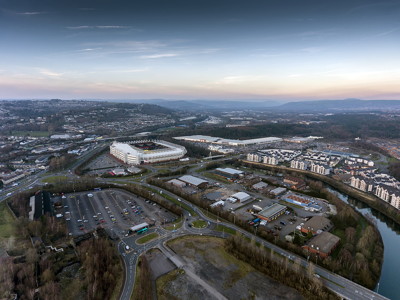 For a lot of football fans, access to games is relatively good. Either there is a train station near to the ground where they’re going to watch the match or else there are buses that run people from the centre of the nearest town or city straight to the game.
For a lot of football fans, access to games is relatively good. Either there is a train station near to the ground where they’re going to watch the match or else there are buses that run people from the centre of the nearest town or city straight to the game.
This had to be the case in the past, of course, given that there were far fewer cars on the road than there are nowadays. It was common for people to need to find a way to get to the match that didn’t involve them needing to park a private vehicle, so that’s exactly what happened in most cases.
In the modern era, most football fans have a car and plenty of them will drive to the stadium ahead of a match kicking-off. For those that don’t drink or need to get away quickly once the full-time whistle has blown, this can make their life significantly easier.
Indeed, there are plenty of people who leave before the whistle has even gone, desperate as they are to beat the traffic. The problem is, the majority of grounds don’t have the option for parking close to the ground, leaving drivers desperate to find somewhere, anywhere, to park.
The Official Parking Lots
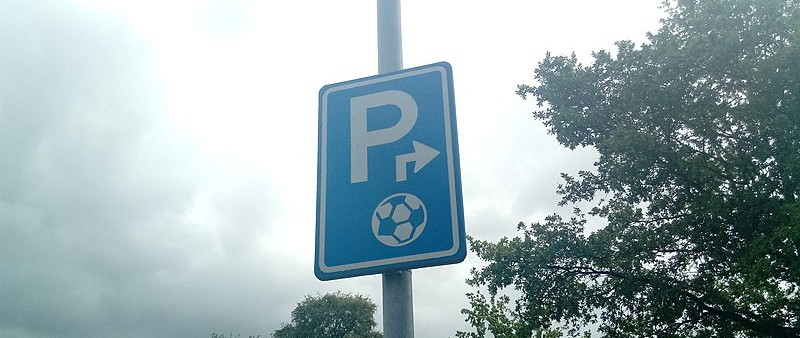
Whilst it would be untrue to say that all football grounds have large parking areas, it is common for most, especially modern ones, to have official areas to park.
The problem is that stadiums have enough room for tens of thousands of supporters, so they’re almost never going to be big enough to house all of the cars that need to be parked there.
Most stadiums have private areas for the footballers, coaching staff and managers to park, as well as those people that pay large sums of money in order to have seats in executive areas.
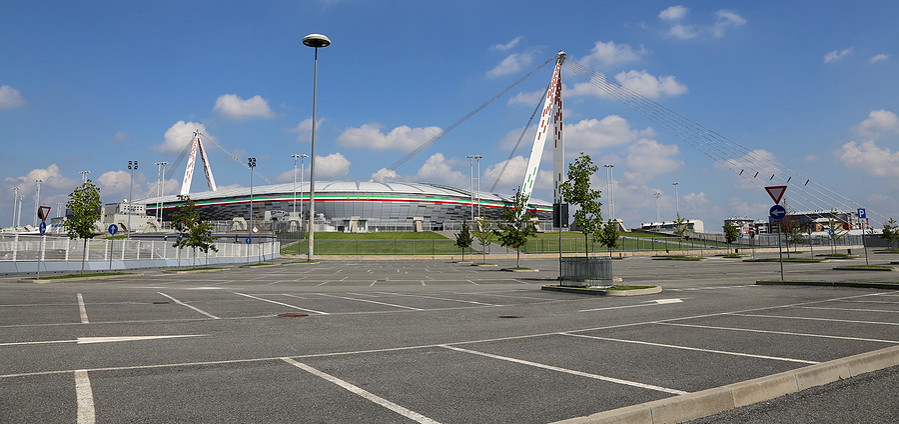
More and more football grounds also have room for disabled supporters to park, meaning that they can get much easier access in time for the match. All of this takes up room and, more importantly, is limited only to those that need it.
As a result, the majority of stadiums have strict rules on who can and can’t park in the areas closest to the ground.
Sometimes passwords are given out to people that they give to the police and stewards who block the roads nearest to the stadium, with passes to display in the car in order to prove they are genuinely allowed to be there.
Unofficial Parking Areas
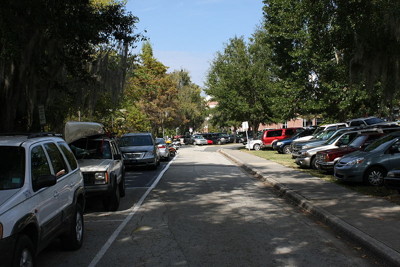
The official parking areas are ones that the club either takes responsibility for or else hires a company to take responsibility for. There are, of course, many enterprising people that either own or have access to land close to football stadiums that they will allow people to park on for a fee.
Usually you’ll have to pay anywhere from £5 to £30 for the privilege, depending on things such as how close to the ground you are and where in the country the football ground you’re going to watch the match in is located. These sites are theoretically safe, with someone watching over them whilst the game is on.
In a lot of different areas of the country, there are roads around the stadium where you can park your car ahead of the game kicking-off. Again, there will occasionally be enterprising young people hanging around such locations, informing you that they will ‘mind your car’ in exchange for money. It is often best to give them a pound or two and tell them they’ll get some more money if they’re still there when you get back from the game. That’s no guarantee that they’ll remain by your car for the entire time you’re gone, but it provides at least some peace of mind.
When parking at a Liverpool game once I paid a boy £2 to ‘look after my car’. The man who parked behind me in a range rover, however, did not want to pay. When the boy asked why he would not pay for him to ‘mind his car’ the man replied it was because he had two rottweiler dogs in the boot and no one would steal his car. The boy then asked ‘oh, they can put fires out then can they?’. The point being that paying a local kid to look after your car will not mean they actually look after your car but at least they won’t damage it!
Driveways
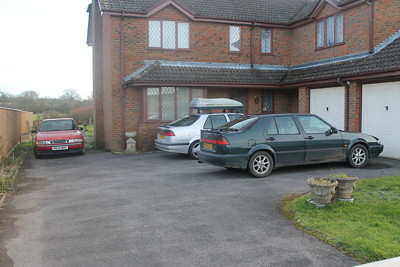
It has become more and more common for people that live close to football grounds to offer out their driveways for parking. As with any other form of parking your car close to a stadium, this usually comes with a fee. The more ‘secure’ the person’s driveway is going to be, the more likely it is that they’ll charge you more money.
Sometimes people will allow several different drivers to park on their property, meaning that you can find yourself in a situation where you’re unable to leave until a car blocking you in has already left the area.
There are websites you can head to, such as Just Park, to find out information about people that are happy to rent out their driveways for a fee. You can even negotiate with them, should you be a season ticket holder that is looking for a long-term stay every time your team has a home game.
Whether you think this is a sensible thing to do or not will likely depending on how much disposable income you have and how close to the ground you think you need to be able to get, for whatever personal reason is at play in your particular circumstance.
When Parking Goes Wrong
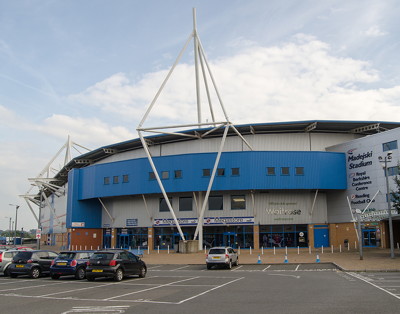 Whilst we’d all love to imagine that parking for a football game is always a hassle-free experience, the reality is far different from this. It is common for local councils, in coordination with the football clubs that are based in their jurisdiction, to introduce restrictions on parking at our near a stadium, for example. Supporters in Liverpool were warned of no-parking zones coming into play close to Anfield, the home of Liverpool Football Club, and their neighbours’ Everton’s home ground of Goodison Park in 2009.
Whilst we’d all love to imagine that parking for a football game is always a hassle-free experience, the reality is far different from this. It is common for local councils, in coordination with the football clubs that are based in their jurisdiction, to introduce restrictions on parking at our near a stadium, for example. Supporters in Liverpool were warned of no-parking zones coming into play close to Anfield, the home of Liverpool Football Club, and their neighbours’ Everton’s home ground of Goodison Park in 2009.
When the restrictions were introduced on Merseyside, an extra 12,500 homes saw match-day residents’ only parking introduced, doubling the size of the no-parking area. Those that were guilty of ‘irresponsible’ parking saw their cars towed, thanks to the 17 enforcement officers working in the area that issued as many as 150 tickets. This was largely because, according to the Parking Manager for Liverpool City Council, the number of tickets issued wasn’t reducing week on week, so towing cars away felt like the only way of getting the point across.
It isn’t just on Merseyside where such restrictions are imposed, of course. In October of 2018, there was an hilarious incident in non-league football when the Dulwich Hamlet goalkeeper stopped playing after he recognised the number plate of a car being towed as it was read out over the tannoy. He had arrived late for a friendly between the team and their fellow Lononders Crystal Palace and saw no spaces, so he parked in a manner that blocked someone in. As you might imagine, it led to some excellent ‘banter’ in the weeks that followed.
